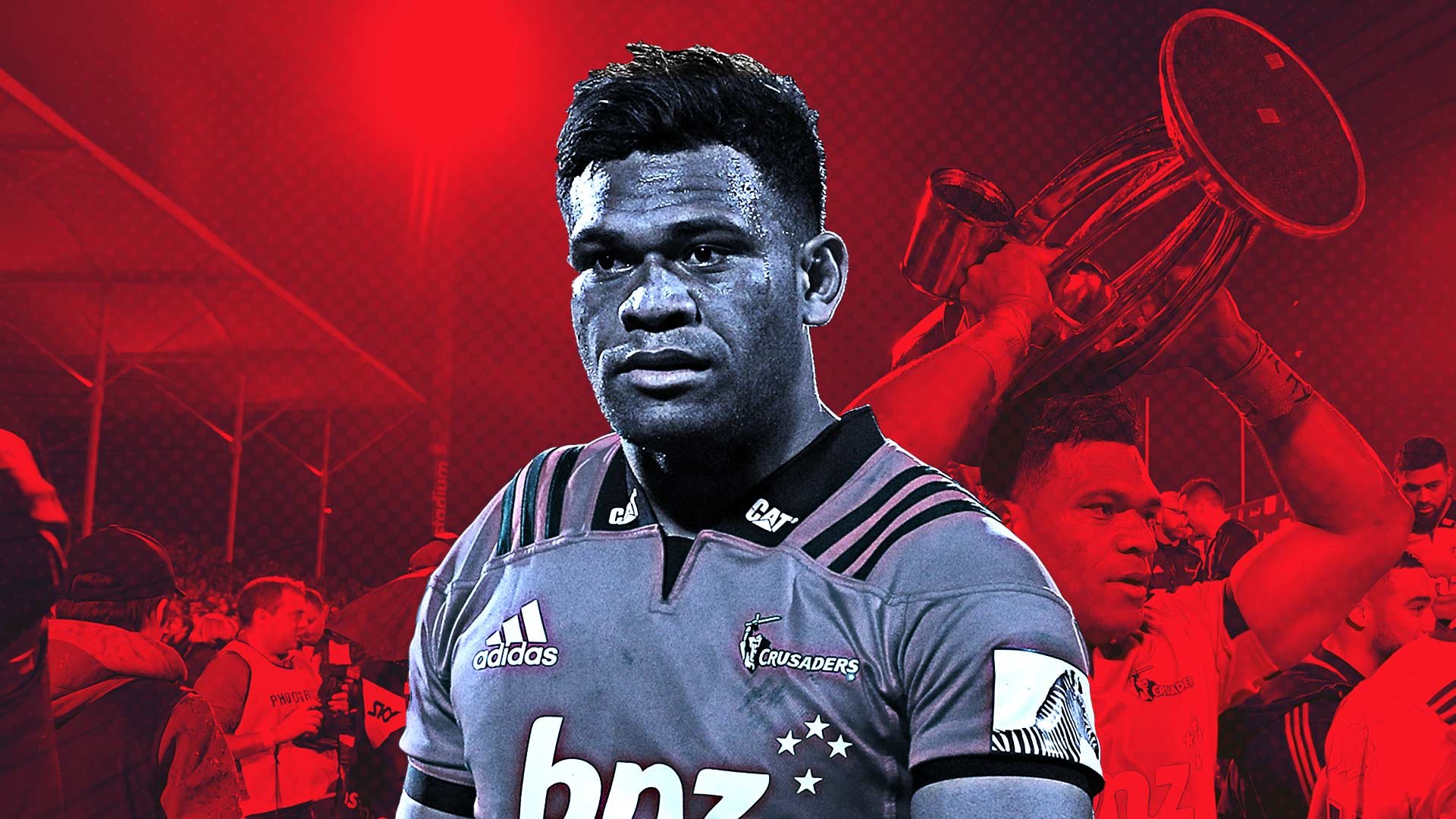Seta Tamanivalu’s career found a second life at the Crusaders

When Seta Tamanivalu finished the 2016 season, his career was at a crossroads.
His meteoric rise had seemingly already fizzled out. A quick stint in the All Blacks June series was not the beginning of an illustrious international career. He was left out for the remainder of the season, overlooked for most of the Rugby Championship.
The second test against Wales in Wellington saw Tamanivalu come off the bench early to replace an injured Malakai Fekitoa. Despite the All Blacks coming away with a 36-22, many feel he was outplayed by his opposite Jonathan Davies.
A power handoff that left Tamanivalu on the ground was the play that many will remember in a night he will want to forget. George Moala was called in as injury cover for the third test, forcing the dynamic midfielder out altogether. That would be the second to last time he pulled on an All Blacks jersey in a test match, with a third and final cap coming in late August against the Wallabies.
This was a puzzling situation to be in. It was only just that season that he had established himself as an attacking weapon in the Chiefs midfield, banking nine tries in often spectacular fashion, using raw power and speed to break through defenders reminiscent of his days at Auckland’s Saint Kentigern College.
Fast forward two years and the 26-year-old will leave New Zealand just when things couldn’t be better. The Fijian-born winger will leave the Crusaders having won two championships in two years, validating his decision to leave the Chiefs in search of something new.
It was at the end of that 2016 season when he came off contract at the Chiefs that the Crusaders showed interest in bringing in the then 24-year-old. Robertson labeled him as ‘exactly the kind of player we’ve been looking for’. A hesitant Tamanivalu made a one-year commitment to see what they could do.
“At the start, I just came down here to have a look what’s going on, that’s why I signed for a year first,” he explained.
The signing was announced in September before the end of year international season. He again missed initial selection for the All Blacks end of year tour, but he traveled to London to play with the Barbarians in some exhibition matches.
It was there where he joined forces with two future teammates – Jordan Taufua and Richie Mo’unga, who praised the culture of the team that would welcome him next year.
“I didn’t really know anyone [at the Crusaders], I played with a couple of the boys at the Baa Baas [Barbarians] and they talked about the environment down here,” he said.
It was expected by those outside the organisation that he would fill the vacated left wing spot after the departure of Nemani Nadolo, but he resumed his third Super Rugby season on the opposite side, filling the number 14 jersey with regular appearances.
He made just two appearances before the bye week in Round 7, before becoming a regular starter with 15 appearances, scoring 10 tries, as the Crusaders went on to capture their first title in nearly 10 years.
In the Crusaders system where wingers tend to flourish, moving to the wing had no limitations for him. The Crusaders found a way to get the best out of the power runner, finding space for him with clinical lead-up work.
Tamanivalu gave the Crusaders a physical presence that could finish when given one-on-one matchups on the outside and as a strong runner he could be used off his wing to carry down the 9-10 channel from set-piece.
His previous time at centre gave the team valuable midfield cover, and as he became more trusted, he became part of the ‘closing’ squad.
The Crusaders routinely use the bench to provide strategic impact, and one of their favourite changeups to close games out was to run a ‘power’ lineup for the final twenty minutes. This would involve second five Ryan Crotty being substituted for strike weapon Manasa Mataele, who would play on the wing with Tamanivalu moving into 13 and Jack Goodhue moving into 12.
The number of tries the Crusaders ran in the final stanzas with this lineup was quite remarkable, and Tamanivalu often had a hand in the mix.
As the Crusaders pile up championships, national selections are natural to follow. And at just 26-years-old, an All Blacks recall looked a real possibility. His decision to sign a three-year deal in France with Bordeaux to secure his family’s future will close that door, but he leaves having been a part of something special.
“What we had at the Chiefs was pretty different. It’s a blessing for me to come down here, two years and two trophies.”
He will be missed by this Crusaders side and the Crusaders will be missed by Tamanivalu.
“The brotherhood down here. We all love each other. After training we hang around with the boys, we’ve got an awesome family. The coaches are pretty big on the family as well, that’s what I like about it.”
His opening try in the final showed off his dominant physicality one last time, and he finishes his New Zealand career having found a second wind and a second title, securing his own place in the Crusaders legacy.
































































